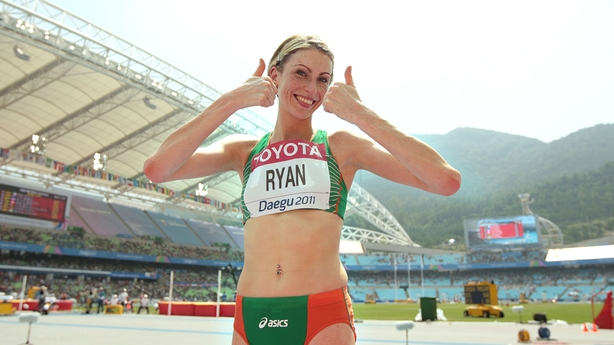Girls who play sport have better body confidence and mental well-being but by the age of 13 one in every two give up sport completely.
These are some of the findings revealed in the research conducted by Lidl surrounding teenage girls and sport.
Former international athlete Deirdre Ryan who competed at the London 2012 Olympic Games can relate to much of the research.
"For me it was really good to see the statistics," explained Ryan, who is now head of corporate social responsibility at Lidl Ireland.
"From my own experience, having competed in the world stage in athletics, I know that sport has really has helped me deal with life pressures."
According to the study, the main benefits that girls reported were increased energy levels, confidence and mental well being.
Girls who play sport are also more likely to feel daily happiness, less likely to be feeling lonely and bored daily, and also rarely feel depressed.
The research also showed that almost two thirds of teenage girls experience peer pressure, with demands to look a certain way accounting for almost three-quarters of it.
"There is more pressure now on young girls with social media, the likes of Facebook and Instagram are so popular.

"I think every girl feels under pressure to look a certain way. When I got involved in sport I became less focused on the way I looked.
"You focus on your well being and focus on getting out. You think less about the way you look and you become more well rounded when you are involved in sport.
"Another thing that came out of the research is that the girls felt pressure to act a certain way and maybe to smoke and to drink.
"If you have a very small social set you are going to feel more pressured by that social set."
The research was commissioned with the aims of understanding why teenage girls play and don’t play sport, getting insight into their mindsets, finding out how sport impacts girls into the future and also getting the viewpoints of parents. It surveyed girls between the ages of 12 to 17, along with parents and adults.
"We’d seen a lot of international research covering girls in sport, but we hadn’t seen anything that was Irish specific," explained Linda Fitzgerald, strategy and cost manager at Lidl Ireland.
"We wanted something that really focused on Irish girls and understood girls and sport in Ireland.
"Across key areas we saw effects on body confidence, mental well being and ability to cope with pressures in life as being positives.
"There is a marked difference between girls who play sport versus girls who don’t, in being able to cope with all those key issues."
The outcomes revealed that the main reason girls stopped playing was because their friends don’t play, with almost half opting out because of that. The next closest reason was because sport became less relevant as they got older.
Important findings from @lidl_ireland Huge benefits 4girls that play sport but still 3 times more likely to stop https://t.co/rIkiW2M0wC pic.twitter.com/2nbTiubw5o
— Ladies Football (@LadiesFootball) July 31, 2017
It also showed that encouragement for girls in sport was low and indeed 72 per cent of girls agreed that they give up because they are not as encouraged as their male counterparts.
Along with this, three in five mothers believe that parents are more likely to discourage their son from giving up sport than their daughters. This was one of the most surprising findings for Fitzgerald.
"A huge per cent of women said that they gave up sport or they didn’t even take up sport in the first instance because they weren’t encouraged and that is a huge statistic.
"Knowing what we know now in terms of mental well being, ability to cope with pressures in life and body confidence.
"It’s especially interesting knowing that girls who play sport can deal with these pressures better than girls who don’t play sport.
"It’s such a stark statistic and we want to make sure that girls who play sport stay in it and those who aren’t that we can encourage them to take it up."
When it came to the most popular sports for the young girls surveyed Gaelic football came out on top with 60 percent, Camogie was second with 28 per cent with soccer, basketball and swimming making up the top five.
Three in four girls agreed that male sports is taken more seriously than women’s sport.
The survey sample was made up of 129 girls aged 12-17, 155 parents and 500 adults aged 18-44. Lidl are supporters of Ladies Gaelic Football.


